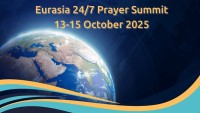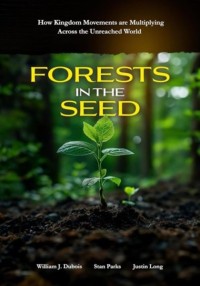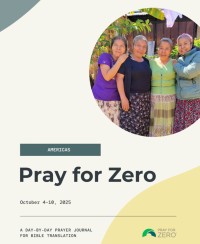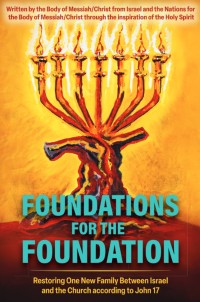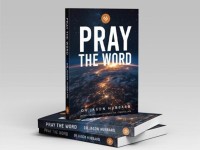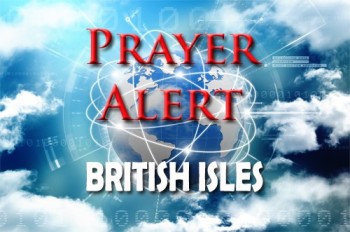Eurasia Prayer Summit – 13-15 October 2025
Join the Eurasia 24/7 Prayer Summit – Called to the Wall!
13-15 October 2025 (Optional Prayer Journey on 16th) - Island of Malta
Across Europe and the Middle East, there’s a rising sense of urgency and hope. The spiritual heritage of these lands runs deep, and many believe we are standing on the threshold of a great awakening.
In this pivotal hour, Jericho Walls International Prayer Network and IPC warmly invite you to the Eurasia 24/7 Prayer Summit, taking place 13–15 October 2025 on the beautiful island of Malta.
The summit’s theme, “Called to the Wall,” echoes the powerful words of Isaiah 62:6-7:
“I have set watchmen on your walls, O Jerusalem; they shall never hold their peace day or night. You who make mention of the Lord, do not keep silent, and give Him no rest till He establishes and till He makes Jerusalem a praise in the earth.”
God is raising up watchmen—men and women who will not rest until Heaven touches Earth in Western Europe, Eastern Europe, and the Middle East. The Eurasia Summit is a gathering for those who carry a burden for prayer for revival in these regions. Leaders from every nation in this vast and diverse part of the world will gather in Malta to celebrate what God is doing and contend for what is yet to come.
This summit is part of a global movement, one of five strategic gatherings around the world, all carrying the same vision: to see 24/7 prayer established in every nation on earth by 2033.
The mission is clear—to encourage, equip, and empower leaders to build unceasing prayer in local churches, cities, and nations.
Whether you are a pastor, prayer leader, intercessor, or simply someone burning with a vision to see God move in your nation, this summit is for you. Let’s unite across borders, languages, and cultures to lift up one sound, one cry, one relentless prayer: “God, have Your way in our nations!”
Watch the video: https://youtu.be/C1_y6nitYfg
Join us in Malta this October. Let’s answer the call to the wall—together!
IPC Calendar and Links
Links to all IPC Projects:
https://linktr.ee/ipcprayer
Light of the World Movie
www.lightoftheworld.com/
110 Cities Prayer
www.110cities.com | Daily Prayer Fuel Sign Up
Global Family 24-7 Prayer Room
www.globalfamily24-7prayer.org/
Prayer Covenant for Children Mobile App
theprayercovenant.org/mobileapp/
Pentecost Global Day of Prayer Replays
VIEW AND WATCH ON YOUTUBE HERE
Interseed House of Prayer App
prod.global.interseed.io/link/groups?id=146
Shine! – All age prayers for the ‘Light of the World’ movie – 14th Oct 2025
https://www.2bc.world/shine
Communion America Oct 9-12th
awakenthedawn.com/communionamerica/
15 Days of Prayer for the Hindu World
12-26 October 2025
www.110cities.com
Eurasia Prayer Summit – 13-15 October 2025
jwipn.com/eurasia-24-7-prayer-summit-2025/
Global Day of Prayer for the Hindu World
20th October 2025 – From 8am (EST)
www.110cities.com
Book: Forests in the Seed – William J. Dubois, Stan Parks, Justin Long
Forests in the Seed: How Kingdom Movements are Multiplying Across the Unreached World
by William J. Dubois (Author), Stan Parks (Author), Justin Long (Author)
Forests in the Seed opens a window into the 21st century of God's plan to multiply His Kingdom to everyone everywhere.
Rather than a theory-based "how-to" book, this is a testimony of what is happening now as men, women, and children raised to new life in Christ are denying themselves, taking up their cross, and following Him. The stories within this book are remarkable, supernatural in nature, and yet also lay out simple principles of multiplication found in Scripture.
Perhaps most incredible is a pattern weaved together of everyday people compelled by a vision of a resurrected Christ, who are being used in extraordinary ways to spread the Gospel in nearly impossible places. There is a spiritual revolution underway, and Forests in the Seed is your invitation to join and help change the world.
Publisher: Patmos Education Group (September 29, 2024)
Seed Co: Join us as we Pray Toward Zero
Every week, Seed Co invites you to join us in praying toward ZERO, the day when not a single person is left without Scripture in their language.
This week’s journal brings you stories of God’s Word reaching hearts in the Americas:
- We pray for healing for 2 translation workers in Mexico.
- A project to translate the Chachi New Testament has come to life.
- Adilton shares his story of 20 years of commitment to bible translation and church planting.
- Praise report from the ‘Bible for All Peoples’ 2nd Conference in Brazil.
As you read, you will also find specific daily prayer points from global updates to personal stories of faith that guide you in praying strategically with others.
What a joy it is to witness God’s work and to join other believers in prayer. Thank you for standing in the gap until all people have access to Scripture.
Read, Pray, Join Us on this Assignment!
Blessings,
The Pray For Zero Family


